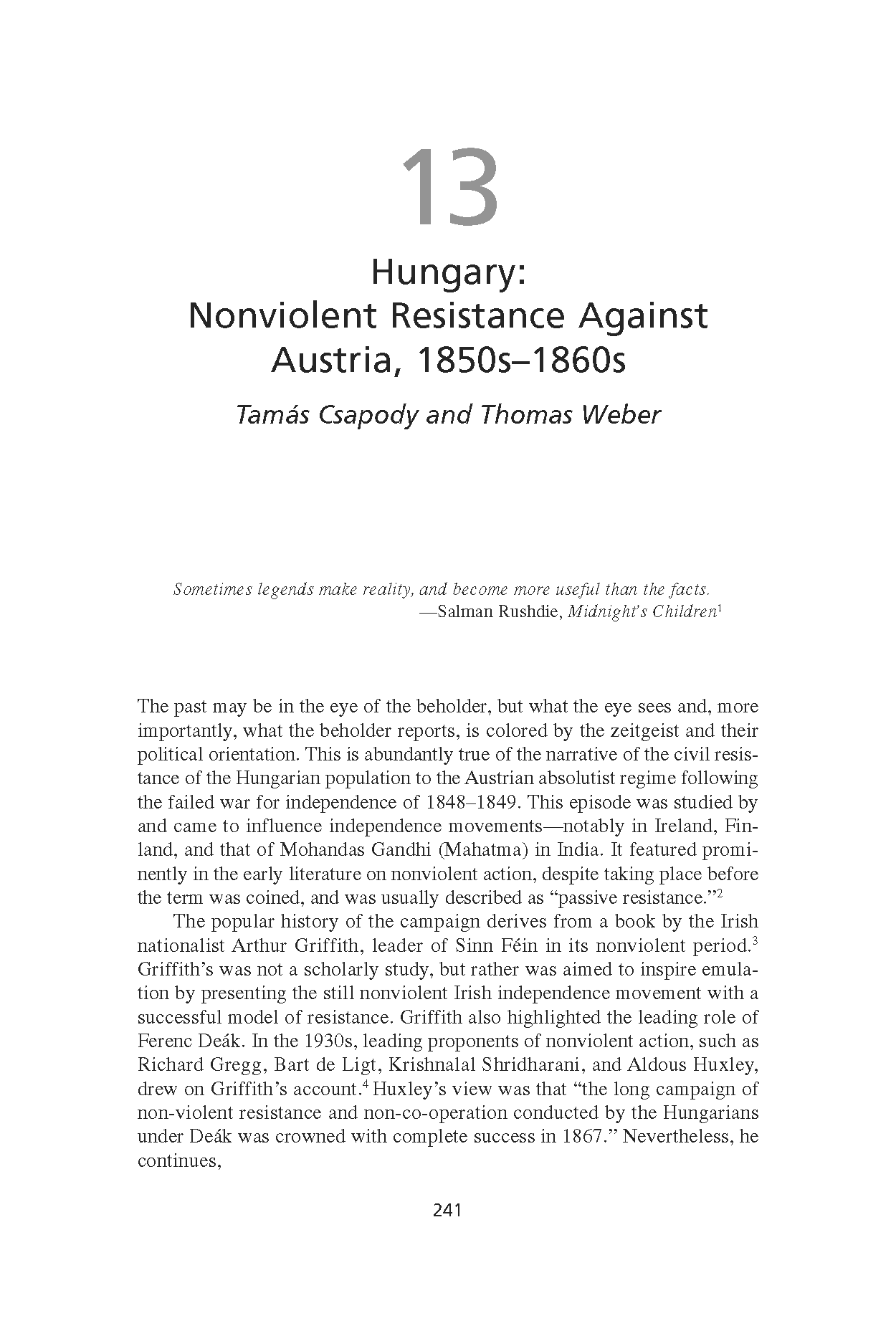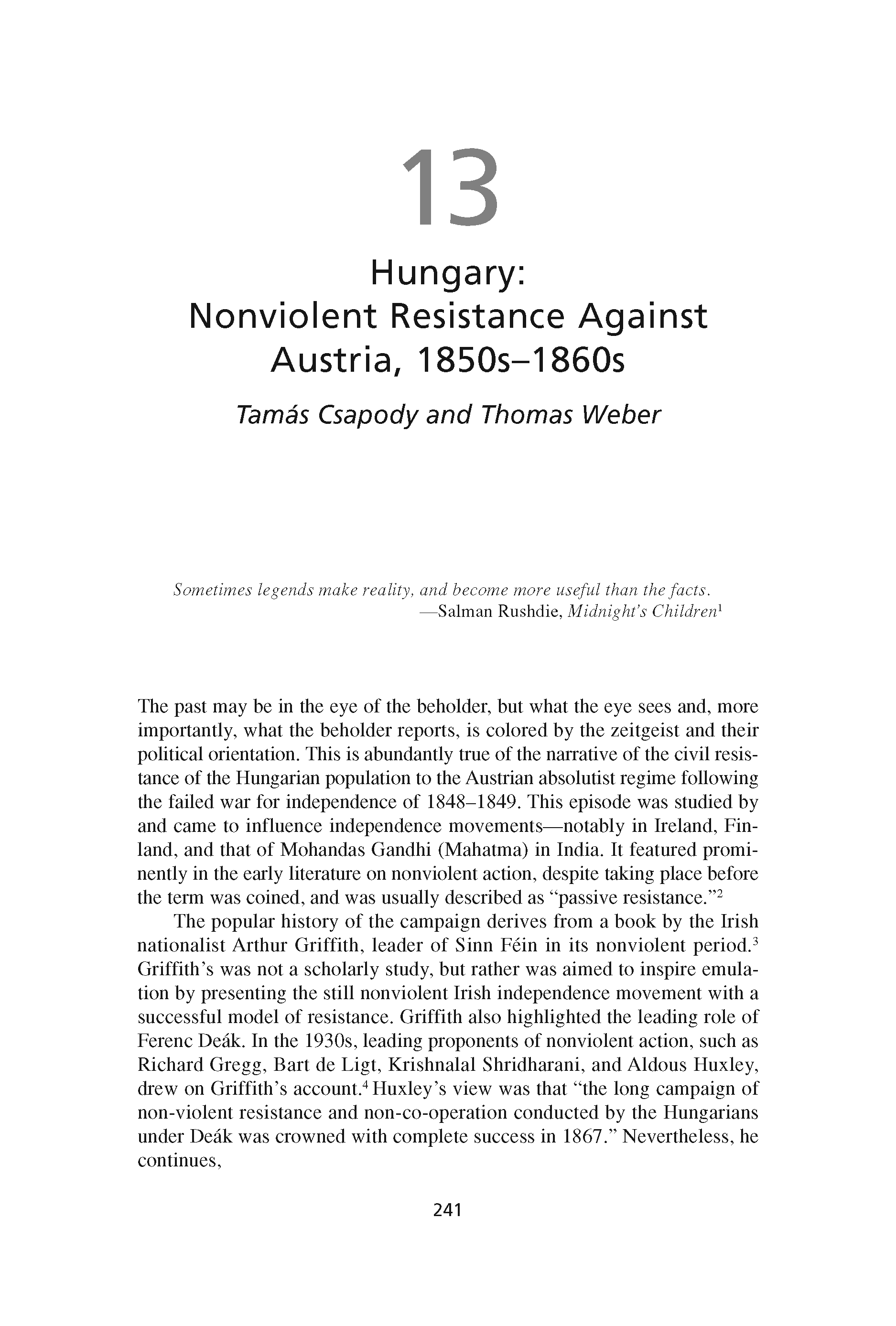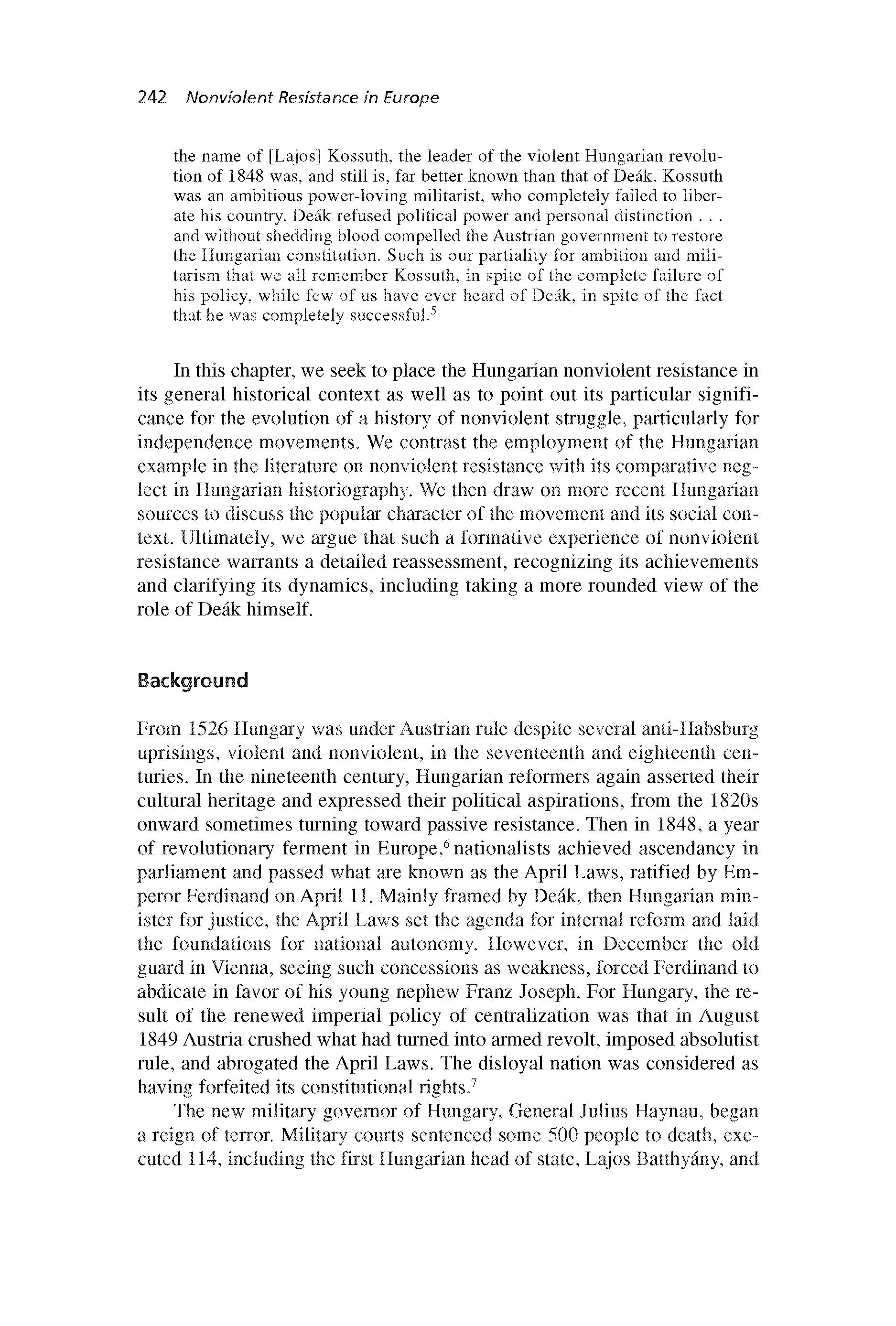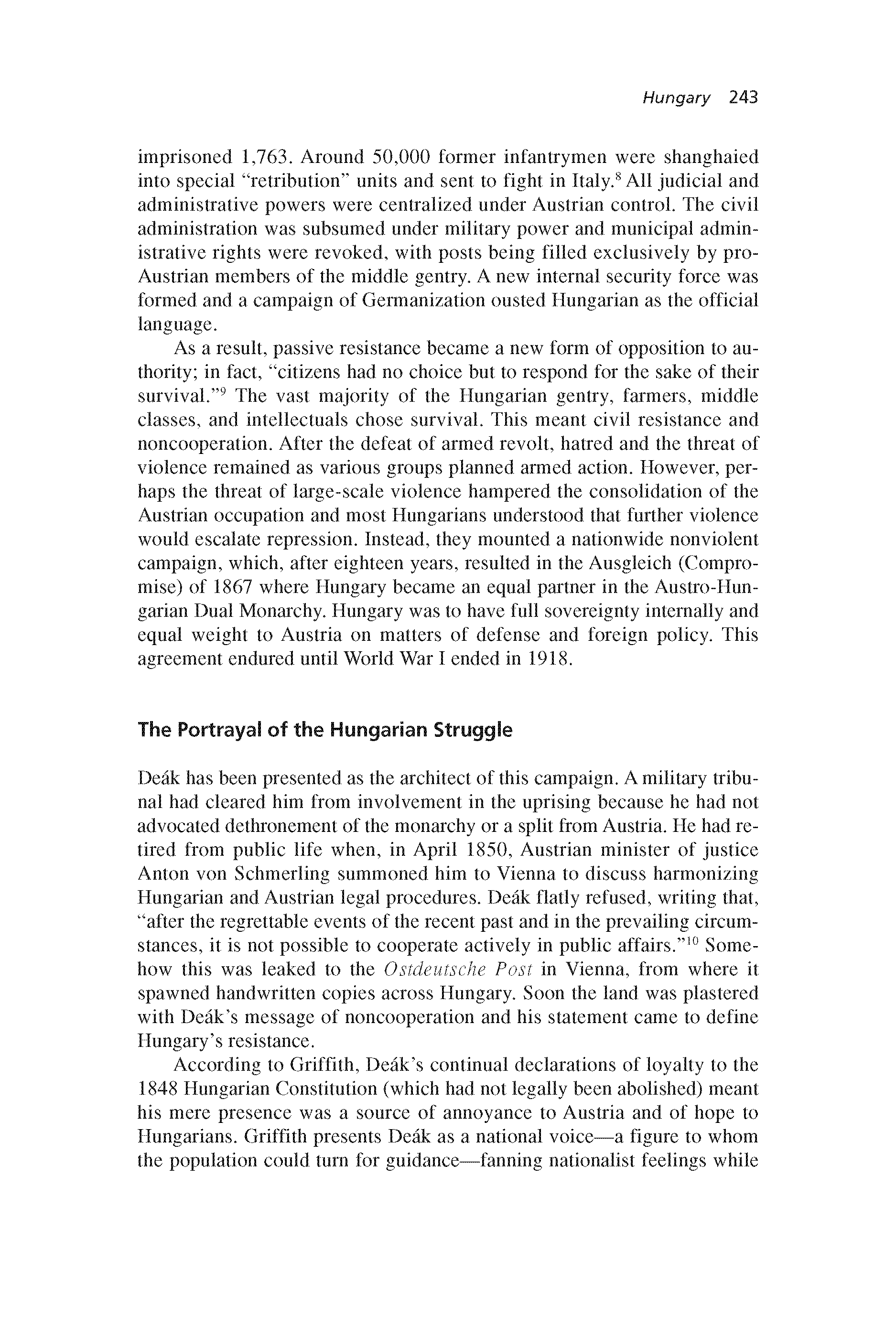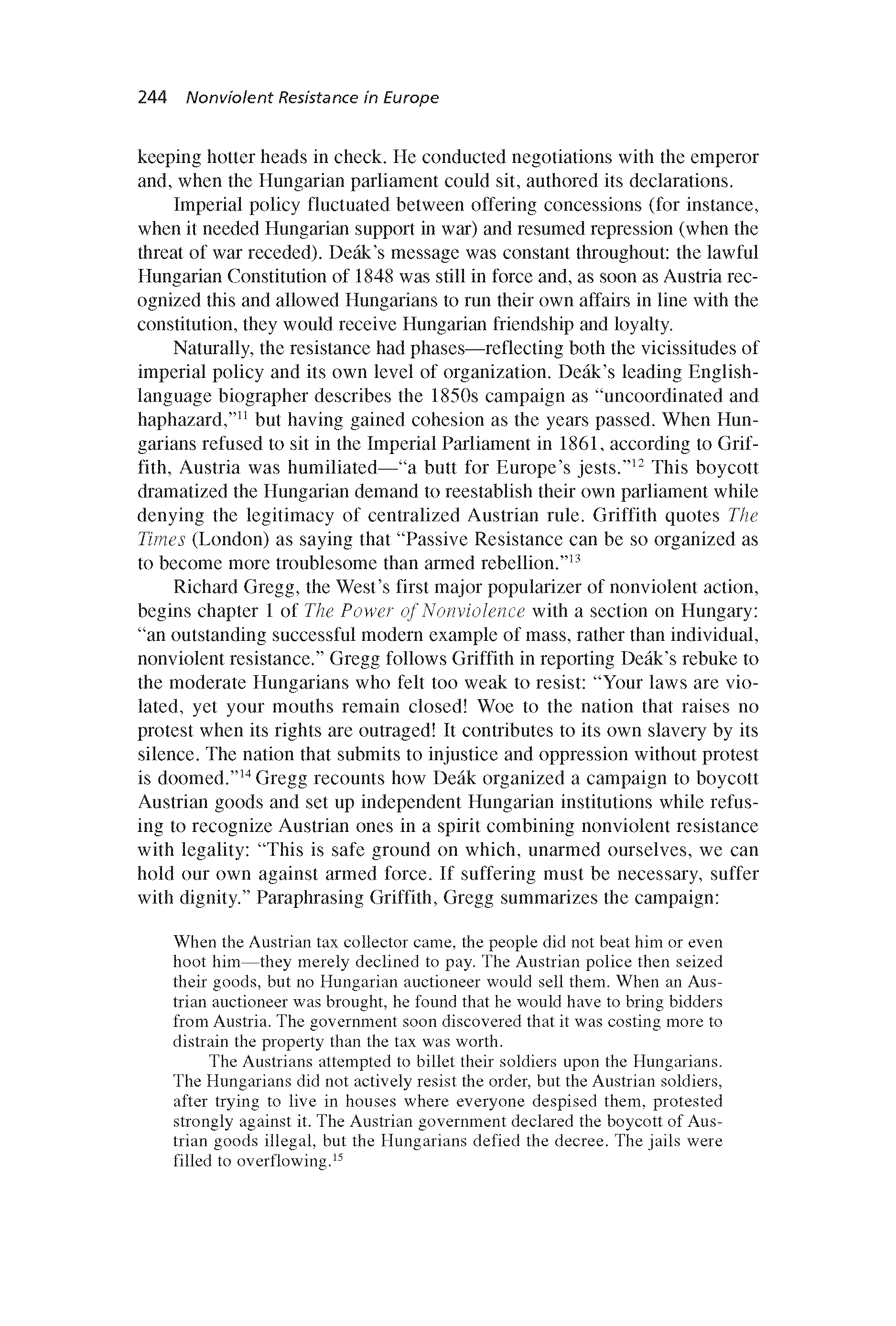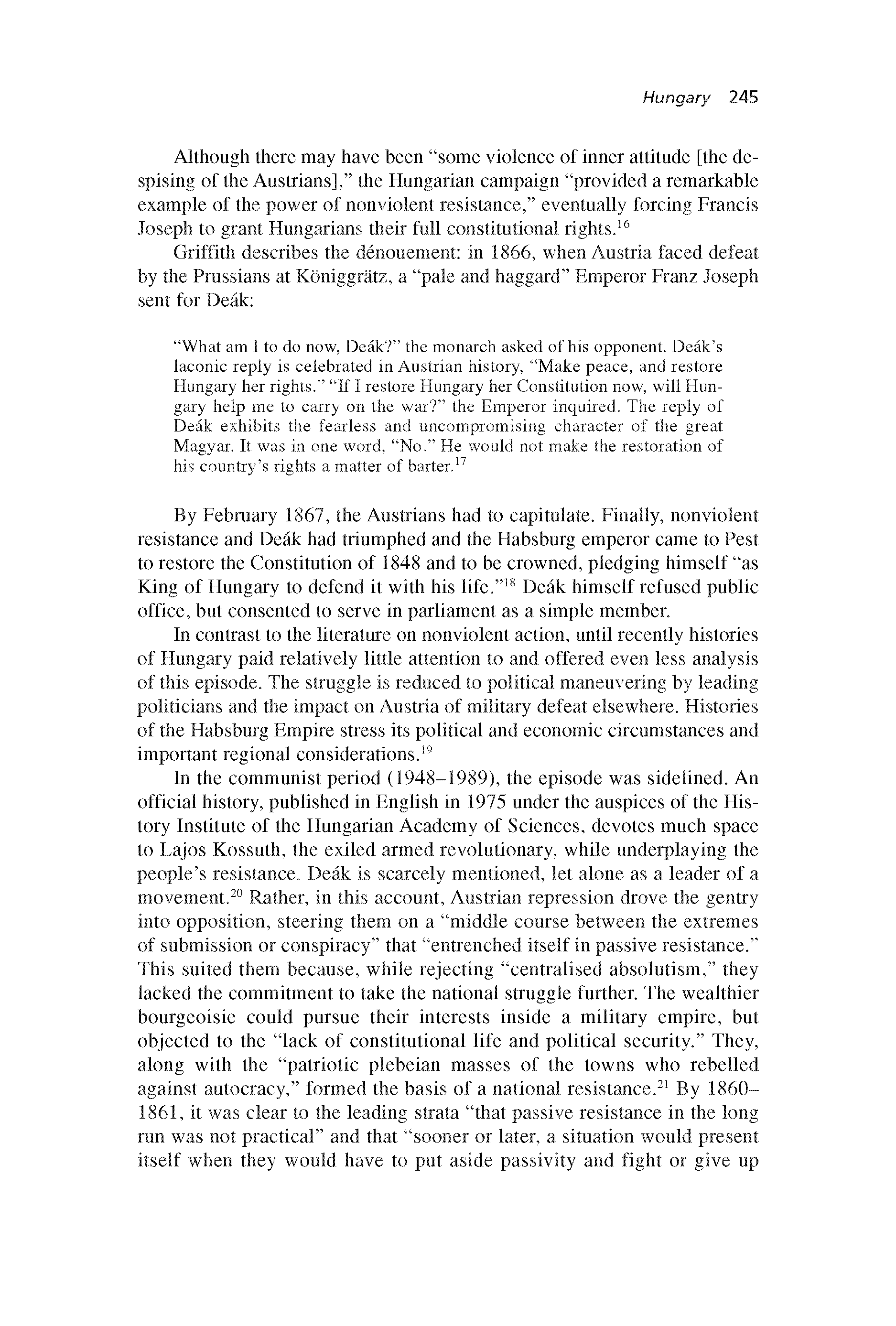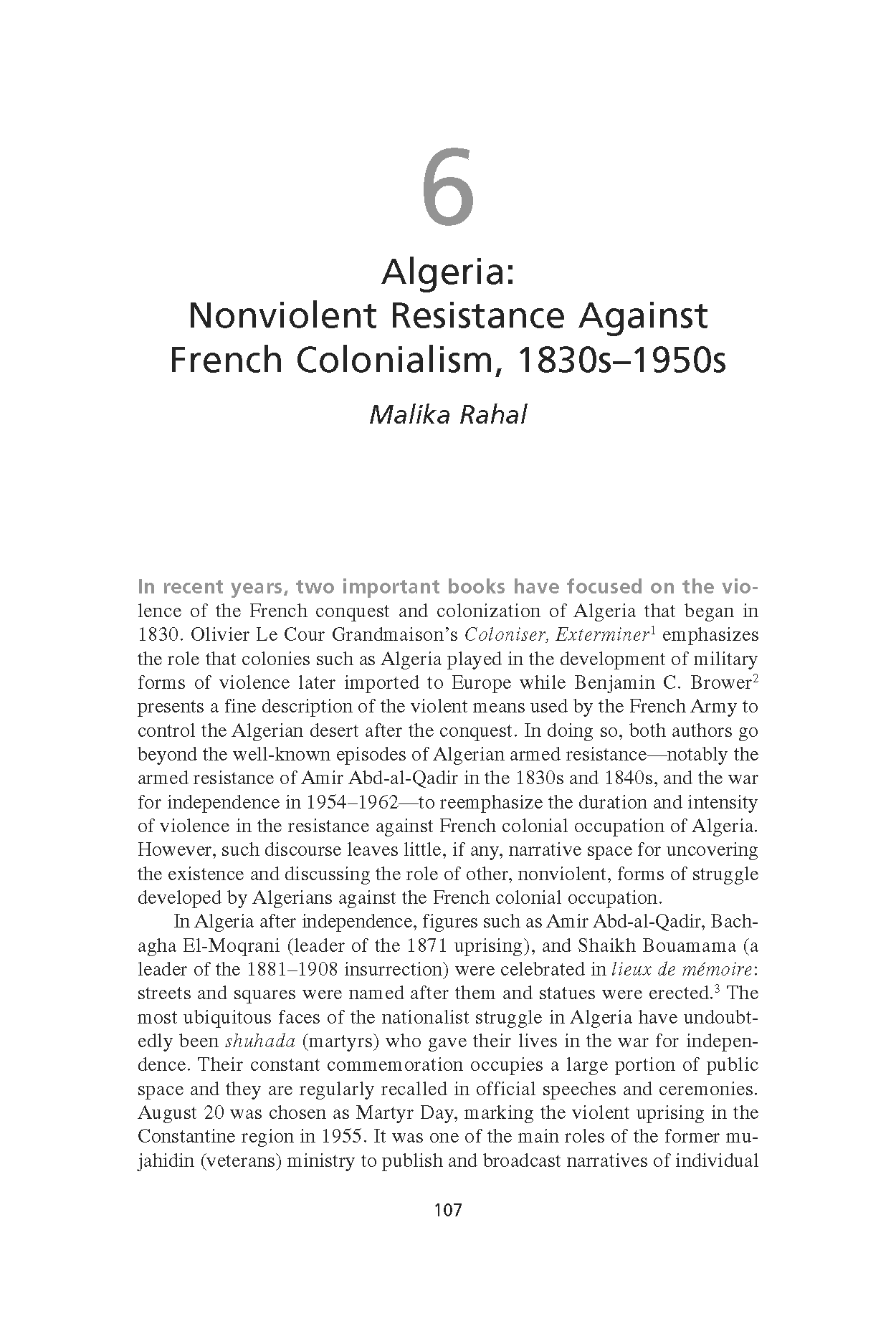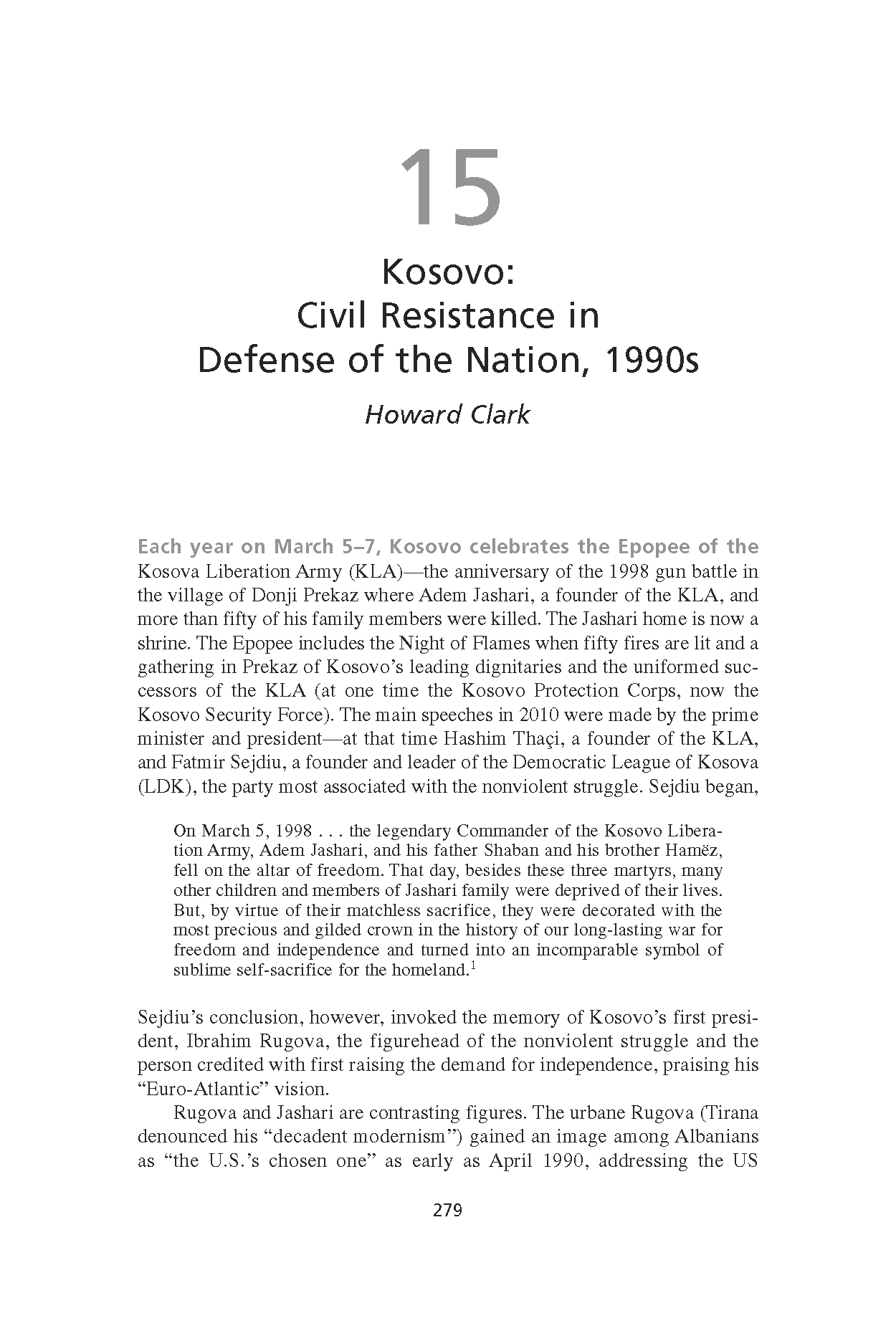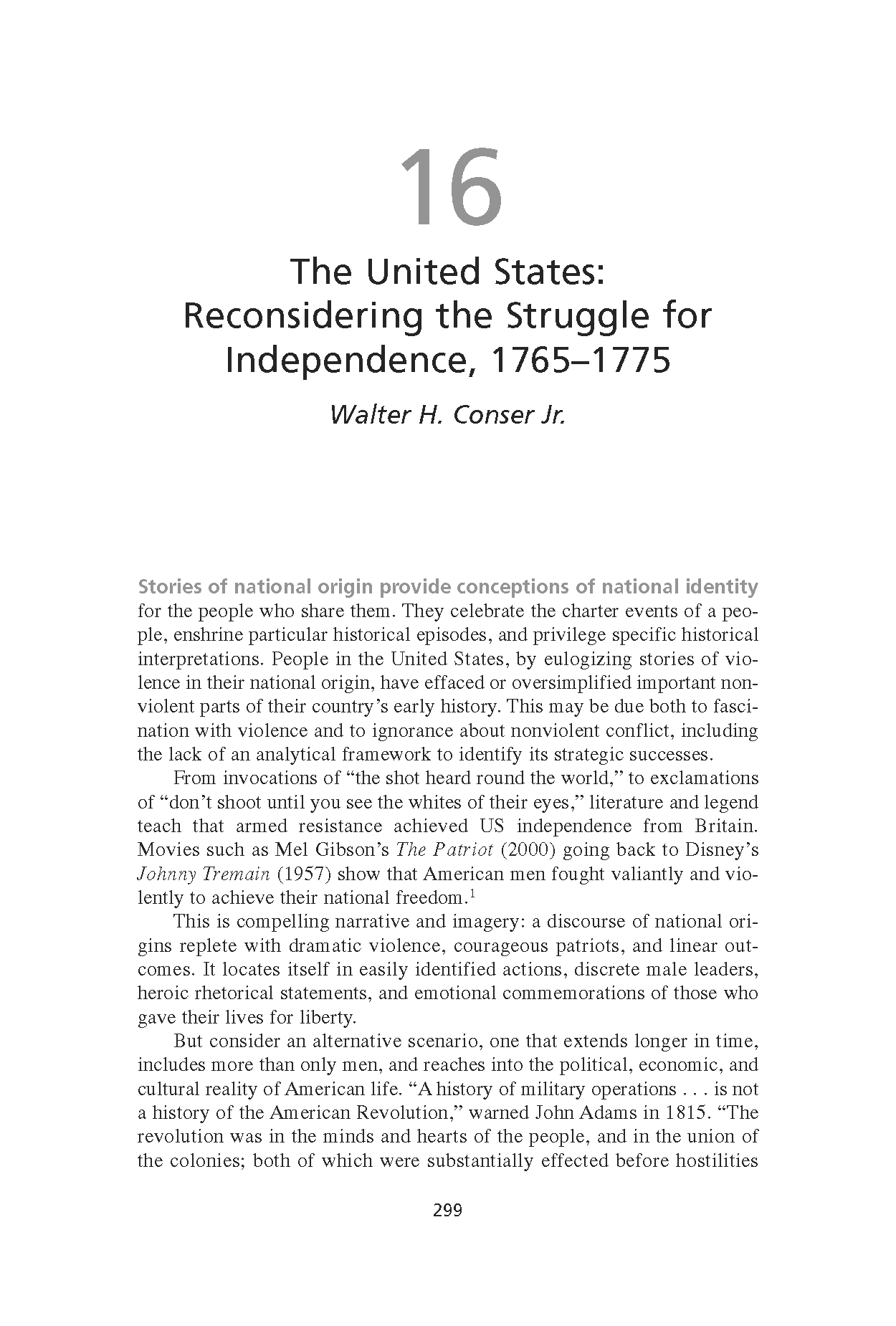Hungary: Nonviolent Resistance Against Austria, 1850s-1860s (Chapter 13 from ‘Recovering Nonviolent History’)
The past may be in the eye of the beholder, but what the eye sees and, more importantly, what the beholder reports, is colored by the zeitgeist and their political orientation. This is abundantly true of the narrative of the civil resistance of the Hungarian population to the Austrian absolutist regime following the failed war for independence of 1848–1849. This episode was studied by and came to influence independence movements—notably in Ireland, Finland, and that of Mohandas Gandhi (Mahatma) in India. It featured prominently in the early literature on nonviolent action, despite taking place before the term was coined, and was usually described as “passive resistance.” […]
From the book ‘Recovering Nonviolent History: Civil Resistance in Liberation Struggles’, 2013
